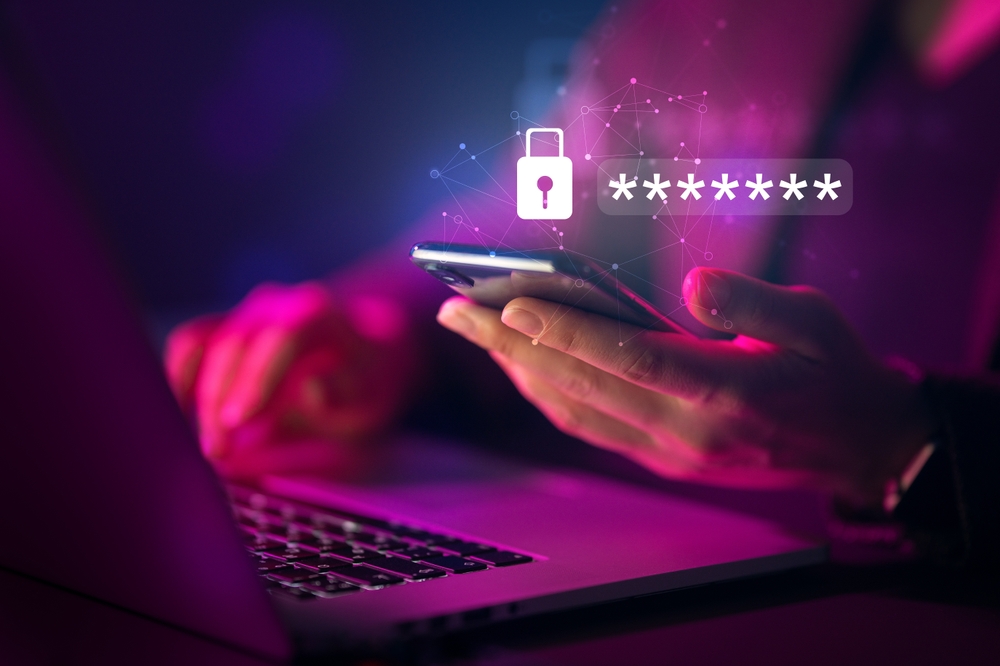While you’re on a shopping spree, make sure you avoid Black Friday scams!
‘Tis the season to be jolly and buy a lot of products for bargain prices, but also be extra careful about Black Friday scams. While everybody is running to the closest store or clicking refresh on their favorite website to see the discounts and quickly add everything to the cart before they disappear in the blink of an eye, there are a lot of hackers and swindlers ready to take advantage of our shopping fever.
This article will outline the most prevalent kinds of online fraud to be aware of during Black Friday and Cyber Monday. It will also include advice on how to avoid falling victim to these Black Friday scams and keep yourself and your finances secure while shopping.

-
Do your research
If you want to avoid Black Friday scams, it’s crucial to stick to all the stores you trust. Since all of the major brands have strong security measures in place, there is little likelihood that they or you will be hacked. Nevertheless, if you purchase from any website, be sure you’re on the actual store page by using the URL bar of your browser.
And if and when you’re ready to shop from a small outlet, always check their contact details, address, if they have headquarters, and so on. It might also be helpful if you look up customer reviews.
If you’re unsure about your credit or debit card issuer’s fraud protection measures, check them online. However, don’t forget to monitor your bank accounts to avoid Black Friday scams and see if by any chance you’re not charged extra for the payment.
-
Keep an eye on the payment information
If you’re about to shop at one of your bookmarked stores, then you’re totally safe, and probably you don’t have to enter your payment information and all the details again. But if you’re inputting information into a new website, confirm once again that the padlock icon appears in the address bar. The entire URL should start with “https://,” indicating that the information you submit will be encrypted while it’s being transmitted.
If, by any chance, you’re out of town for Black Friday weekend but you’re still keen on buying something that will arrive by the time you get home, we suggest you wait. Most people purchase stuff while they’re on a public WI-FI hotspot instead of making sure the internet provider is trustworthy. By doing this, you’re giving hackers the chance to have easy access to your credentials, because believe it or not, they’re super vigilant and “trained” for this “job.”
Furthermore, to avoid Black Friday scams, take extra care to protect your PINs and other private information, especially when you’re in public.
-
Watch out for all the social media ads
Another way to avoid Black Friday scams is to pay attention to the ads that pop into your social media newsfeed. Some of them might be accurate, while others are major fakes. To lure customers, fake businesses design eye-catching advertisements with discounted pricing.
However, if you click, you’ll be sent to a spam website that sells imitation goods or a bogus company that collects your data. Ads on social media should not be trusted. If you come across an offer that tickles your curiosity, find out more about the store by searching on Google rather than through the ad.
-
Don’t immediately react to fake delivery notification messages
Swindlers target you with a new kind of communication in this phishing scam: a fake shipment notification from UPS, FedEx, or any other U.S. postal service. Typically, these scams are sent by text message and contain a link to a website where you may submit your personal information or pay taxes or a missing “fee” to “fix” the shipping problem.
-
Update your software
Operating systems and programs must be kept up-to-date, so much so that major tech companies such as Microsoft, Apple, Google, and others have made it difficult for anyone to fall behind on updates.
Generally speaking, you will be forced to install new versions of your software regularly, and it can even occur automatically in the background without your knowledge.
If you want to avoid Black Friday scams, make sure you have the most recent security patches installed on all of your devices to take full advantage of the built-in protection. If you have been putting off updating your computer or phone, do it before Black Friday.
Are you afraid of being hacked? No problem, because on Amazon you can find a nice offer for Norton 360 Deluxe 2024 Ready Antivirus Software for 5 Devices with Auto Renewal, which includes VPN, PC Cloud Backup, and Dark Web Monitoring. It costs only $24.99! Hurry up the offer is limited.

-
Protect all your accounts
On Black Friday, as always, make sure your accounts are secure and locked. Switch on two-factor authentication on every account that supports it (most accounts from Microsoft, Apple, Google, Facebook, and Twitter do, to start), and create strong, one-of-a-kind passwords for each of your accounts (a specialized password manager or your web browser’s password management system can assist here).
While it may be easy to quickly create a new shopping account using your “usual” password, all of your other accounts could become vulnerable if only one of them shares the same password. Aim for a strong one made up of more than 10 characters and numbers.
-
Pay attention to the sellers requesting wire transfers as payment method
Another major thing you have to do if you want to avoid Black Friday scams is to pay attention to the payment method. If they don’t use all the traditional payment methods like credit cards or PayPal, reconsider your purchase.
If a merchant or retailer requests wire transfers for payment, proceed with particular caution, as these payments are almost instantaneous and cannot be refunded once they are delivered. Digital currency: Because cryptocurrencies enable anonymous transactions that are untraceable and refundable, hackers like them. or gift cards unless you’re making use of one on the official website of the company.
-
Never click strange links
Avoid responding hastily if you get an unwanted text message from an unfamiliar number or a questionable email regarding a purchase you don’t recall placing. Avoid clicking on links sent to you by unknown senders. Simply delete any questionable emails or texts if you are unsure about them. If you are worried about fraud, you can always get in touch with customer support immediately.
The same holds for those odd URLs that appear in social media advertisements. I understand that you might find it tempting to do so, but it’s best to ignore them and shut them right away for your security and to prevent fraud.
Takeaway:
If you were unlucky enough to get scammed on Black Friday or Cyber Monday, you should probably stop communicating with the scammer right away.
First, avoid disagreeing with them; second, cancel any outstanding payments as soon as you can; and third, try contacting the bank if your phone app isn’t able to resolve the issue. Try freezing your credit if this occurs after business hours and you are unable to get in touch with anyone.
By any chance, do you happen to be new around here? Then welcome, and we hope we’ll be seeing you soon. If you want to keep in touch with us and the top-notch content in your inbox weekly, then hit that subscribe button. And if this article about Black Friday scams made you curious, we suggest you check out Save $1000 by Purchasing These 8 Off-Brand Items.














